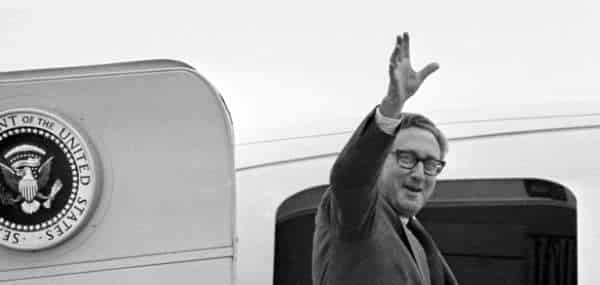




Henry Kissinger, the 56th secretary of state and national security adviser under the Nixon and Ford administrations, died in his home in Connecticut at 100 years of age. His website credits him with helping create the “post-World War II world order.”
He fled Nazi Germany in 1938 and became a U.S. citizen in 1943. He served in the 84th Army Division before earning his bachelor’s, master’s, and Ph.D. degrees at Harvard University.
He taught at Harvard for almost 20 years, teaching international relations. In 1969, former President Richard Nixon appointed him national security adviser. He left office in 1977.
He is known for helping Nixon create relations between the US and China, negotiating A cease-fire with North Vietnam in 1973. He won a Nobel Peace Prize for his part in it, which was considered very controversial. Two committee members resigned from their positions over it. Their reason was that Kissinger had ordered the bombing of Hanoi during the cease-fire negotiations.
After the Arab-Israeli war of 1973 (see Yom Kippur War), Kissinger used what came to be called shuttle diplomacy in disengaging the opposing armies and promoting a truce between the belligerents. He was responsible for resuming diplomatic relations between Egypt and the United States, which severed in 1967.
His major diplomatic achievements included the Middle East. He established the pro-Pakistan policy in the India-Pakistan war of late 1971. He also developed a policy of warmer U.S. relations with the Soviet Union, détente, which led to the Strategic Arms Limitation Talks (SALT) in 1969.
CBS News wrote that Kissinger drew fierce criticism for undermining a democratically-elected communist government in Chile. A military coup followed. Kissinger also sent weapons to Pakistan’s dictator, whose regime slaughtered residents of what’s now Bangladesh.
Kissinger is survived by his wife, Nancy Maginnes Kissinger, his two children from his first marriage, and five grandchildren.
